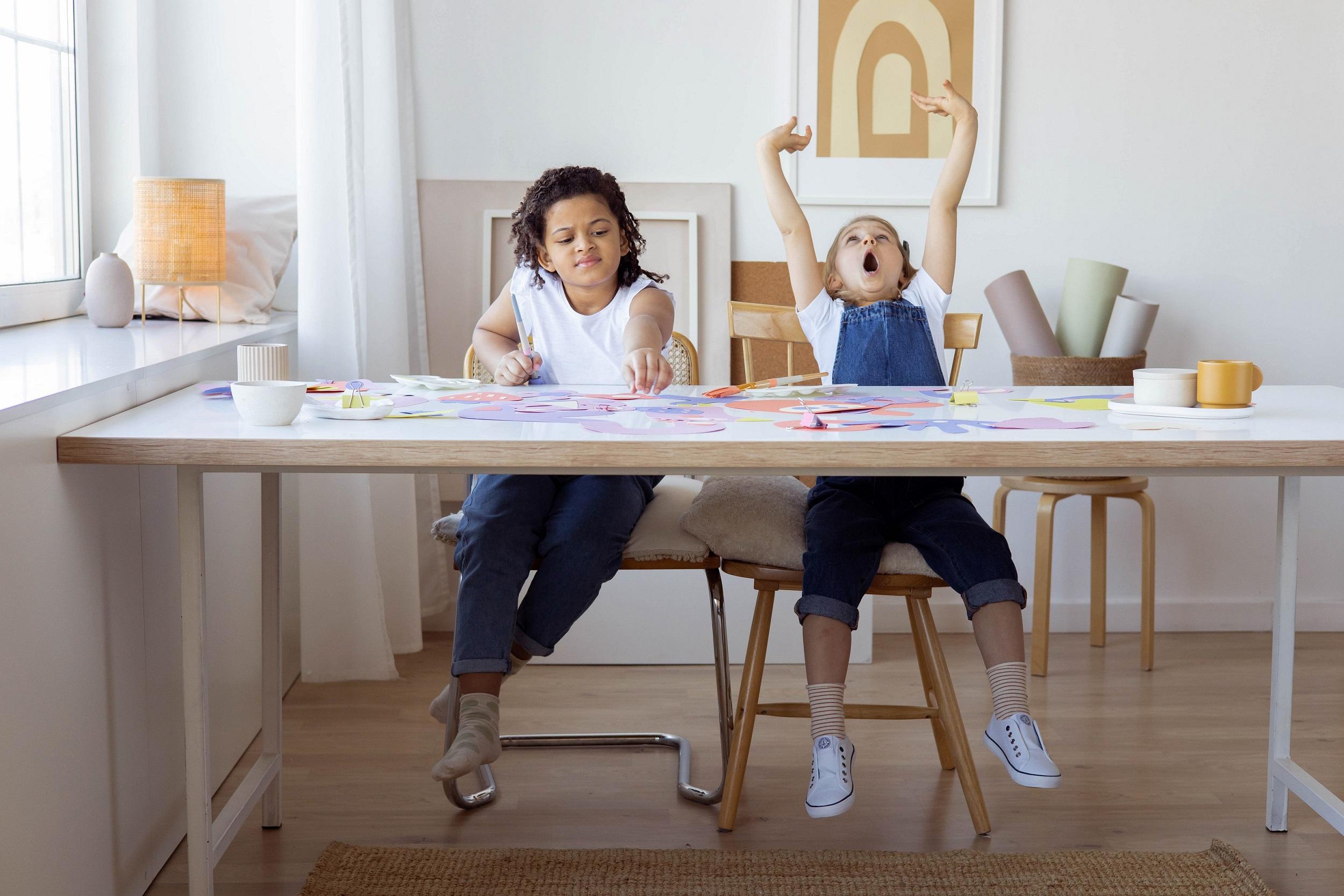


My Child is Not Creative - What Can I Do to Help?
10 June 2023
All children are creative. They are naturally curious and experimental. Perhaps they just need encouragement. It's really important not to label children as not being creative too early. If you feel they are not creative, it may be that they are shy and overly cautious, they are concerned about doing the wrong thing. If your child has had their creativity crushed at some point, you can do a lot to restore their confidence with reassurance and praise. Try to find out what is making them hesitant.
Make time
Make time for creativity. Having concrete materials to experiment with keeps children away from screens and is deeply satisfying for them. It's a great way to bond with your child. Let them experiment with different materials and techniques so that they realise there are endless possibilities and no correct way to do things. Unstructured time after a heavily scheduled day at school is essential for creativity.
Gather materials
Furnish your child with materials to inspire them to make things. Colouring pencils, paints, beads, buttons and scraps of fabric are useful. Glueing pieces of junk together lets them explore 3D. They might believe a box on cardboard tubes is a tractor and you should not disillusion them. Let them use their own choice of colours even if a green cow or a purple cat seems outlandish to you.
Make Space
Make a safe place for them to create. Is there a corner of the kitchen that is easy to wipe clean? Children will be inhibited if they are told off for making a mess. Invest in a plastic mat and long-sleeved apron. Install a sandpit outside. Play with water in the bath pouring and measuring it, letting it drip from a sponge, submerging things and watching them surface and float.
Teach them new skills
Teach your child all the words for materials, for colour and texture. They can learn shapes, make letters in sand, count items for a project. You can show them how to measure things from the length of a piece of string to what amount of water to add.
Ask them to solve a problem. Show them that there are many ways to approach a situation and no one way is more valuable than the other. Don’t make all the suggestions yourself, instead applaud their ideas. Ask them what they liked about the activity and what they are pleased with or enjoyed doing. Do more of this! What do you enjoy? Your child will catch onto your enthusiasm.
Encourage and praise
Ask your child open questions about what they have made. Avoid guessing what a picture is in case you get it wrong or make them feel it's not obvious. Note the choices they made to achieve certain details to reinforce their confidence. Praise the process, do not judge the result.
Encourage them to try what they love doing in different ways. Identify that they are being creative when thinking outside the box to remove the block of them thinking they are not.
